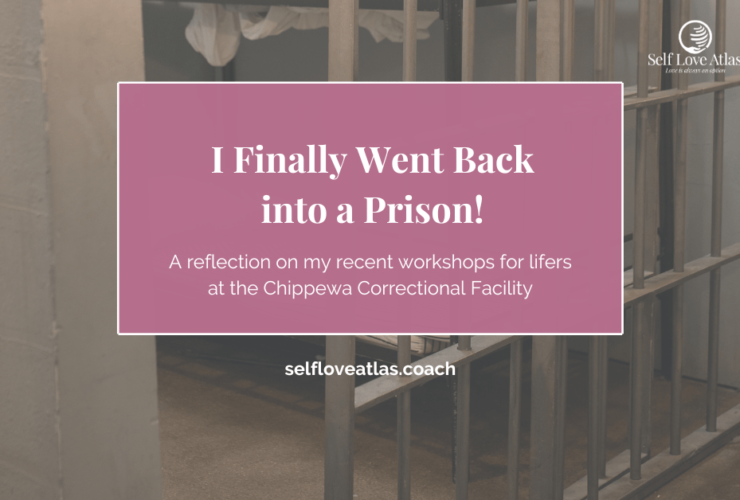How Making Decisions Can Lighten the Load for Others
How can making decisions lighten the mental load for others? In our busy lives, we make lots of choices every day, both big and small. Whether it’s planning dinner with friends or deciding what task or project to do next, every single choice we make requires some amount of energy.
You’ve probably noticed that some people are naturally more decisive than others. For example, when I was living at home with my family, I was usually the one to decide what we were having for dinner on days when we chose to eat out. In contrast, some of my other family members would usually express “I don’t care what we do, let’s do whatever you want.”
There’s nothing wrong with being more or less decisive, but there are times when stepping into decisiveness can actually help and support our loved ones. We don’t need to be decisive all the time, but in times when we recognize something called “decision fatigue” in others, the best way we can help them may be to make a decision, to lighten their mental load.
Understanding Decision Fatigue
Decision fatigue occurs when we feel overwhelmed by the number of choices we have to make. When we make a bunch of decisions one after another, our energy levels can decrease. Over time, as decision fatigue increases, our ability to make choices efficiently or clearly also declines. This is especially true for those who are responsible for others (Parents, health care workers, those in customer service, and people in management and leadership positions), people who have a lot of work on their plate (students, especially in higher education, and those with multiple jobs they’re juggling), individuals who struggle with anxiety or perfectionism, and many more.
When we ourselves face decision fatigue, things like delegating decisions, simplifying our options, or making time for self-care can be helpful. But what should we do when someone else in our life is experiencing decision fatigue? How can we be helpful to someone we love who seems exhausted or drained from having a lot of responsibilities or decisions to make?
Leaving Decisions to Others Comes From a Well-Intended Place
A common mistake I’ve seen comes from a well intended place. We notice someone is overwhelmed/fatigued, and we want them to be able to “do what they want” so we become neutral. This looks like a husband or wife noticing that their partner is overwhelmed, and asking “What would you like for dinner?”
It sounds like such an innocent and supportive question. And it is. But for someone who is experiencing decision fatigue, it may cause more overwhelm.
When we express indifference or neutrality in decision-making, we believe we are giving others the freedom to choose, but in moments of decision fatigue, our partners aren’t looking for more choices, they are looking for less mental labor.
Instead of feeling liberated, the other person may feel pressured to take the lead, or make yet another decision, which can cause additional stress.
Decisiveness Can Be an Act of Kindness
Being decisive doesn’t mean imposing our will on others; rather, it can be an act of kindness. By making decisions, we provide clarity and ease for those around us, especially when they might be struggling with their own choices or mental load. For instance, imagine planning a night out with a friend who has had a long week. You notice they seem overwhelmed by work, family obligations, and perhaps some other personal challenges.
Instead of putting the responsibility of choosing a restaurant on them, you could say, “How about we try that new Italian place for dinner? If you have another spot in mind, I’m all ears!” This approach does two important things: it offers a clear option while also inviting their input. This statement takes the mental burden off the other person while still leaving room for their preferences. It’s a gentle way of guiding the conversation without forcing a decision upon them. Most importantly, this subtle shift reduces their mental workload and doesn’t put them on the spot to make a decision when they’re feeling depleted.
Conclusion: The Gift of Decisiveness
Ultimately, being decisive can be a significant gift to those around us, especially when their energy levels or emotional resources are low. By making choices and offering suggestions, we can alleviate some of the mental labor our friends and partners face, allowing them to focus on what truly matters.
Remember, making decisions doesn’t mean you’re “making them” do something, it just means you’re taking on some of the labor of deciding, just so they don’t have to (if they don’t want to!) while still remaining open to their preferences and input.
The next time you’re faced with a decision, consider how your choice can benefit those around you. Remember, making decisions can be an act of kindness!
How do you approach decision making in your relationships? What signs do you look for to tell whether someone is experiencing decision fatigue? Leave a comment to share your thoughts. For more content to become a confident communicator and improve your relationships, check out some other posts on my blog, or follow me on instagram @morgan_barbret, or sign up for the Self Love Atlas Newsletter!
Much love,
Morgan Rita Barbret (Wojcik)






Great Article. I’m guilty of making the mistake of being neutral, thinking it will make things easier, but actually
causes decision overload on the spouse!
Thank you for reading and for the compliment! I know that neutrality comes from a good/kind place <3. It seems so counterintuitive doesn't it?
Perfect work you have done, this web site is really cool with superb information.